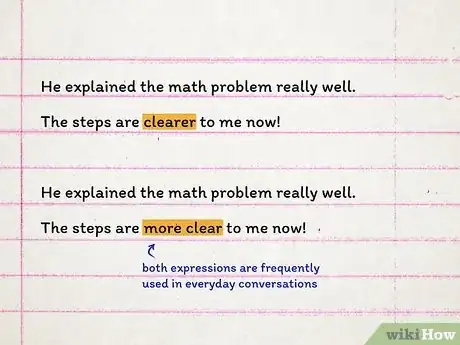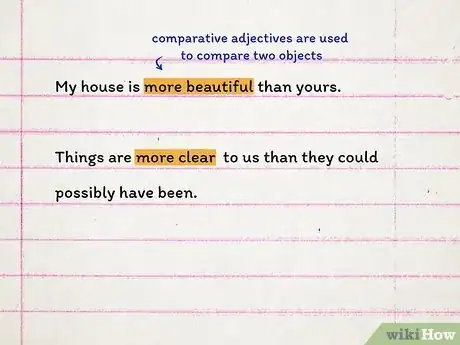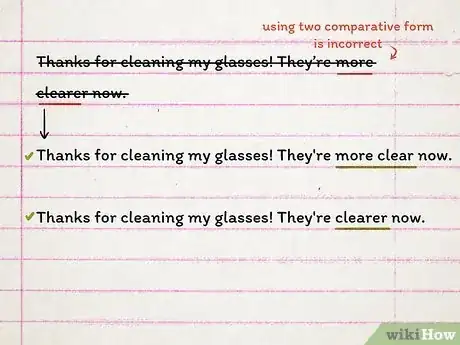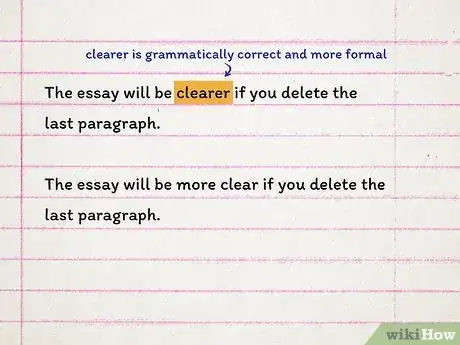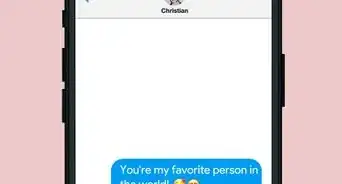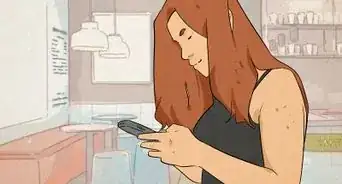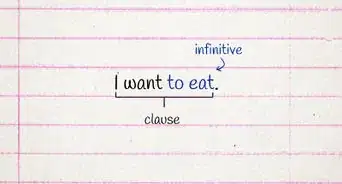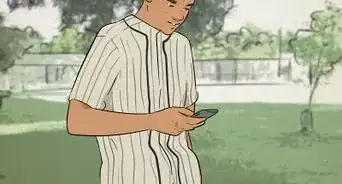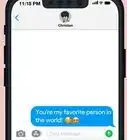This article was co-authored by wikiHow Staff. Our trained team of editors and researchers validate articles for accuracy and comprehensiveness. wikiHow's Content Management Team carefully monitors the work from our editorial staff to ensure that each article is backed by trusted research and meets our high quality standards.
This article has been viewed 11,838 times.
Learn more...
You’ve probably heard people say both “clearer” and “more clear”, but which is grammatically correct? When you hear both expressions so often, it can be hard to tell which to use if you don’t know the specific grammar rules. In this article, we'll teach you everything you need to know so you’re ready the next time you’re debating between using “clearer” and “more clear”!
Steps
References
- ↑ https://dictionarykiwi.com/2016/10/17/more-clear-vs-clearer-when-to-use-more-instead-of-er/
- ↑ https://preply.com/en/question/more-clear-or-clearer
- ↑ https://www.ef.edu/english-resources/english-grammar/comparative-and-superlative/
- ↑ https://keepthatshort.com/is-more-clear-grammatically-correct
- ↑ https://keepthatshort.com/is-more-clear-grammatically-correct
